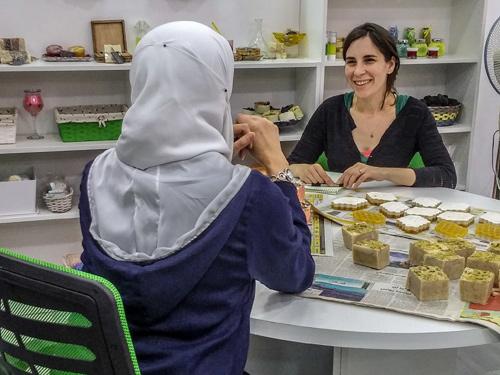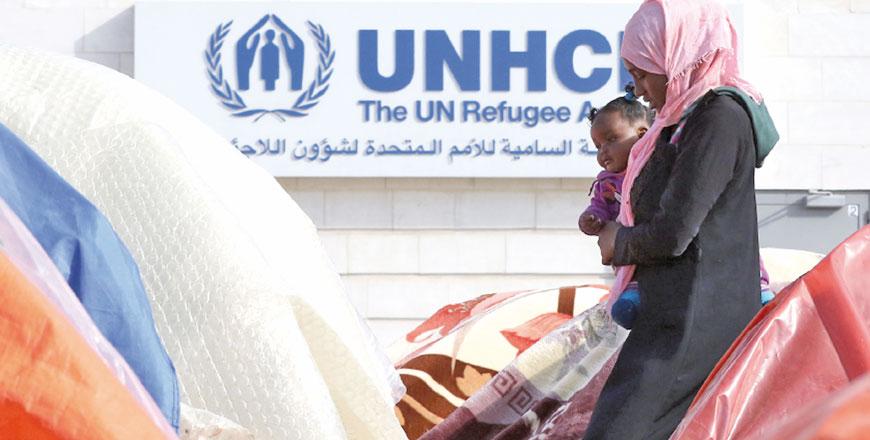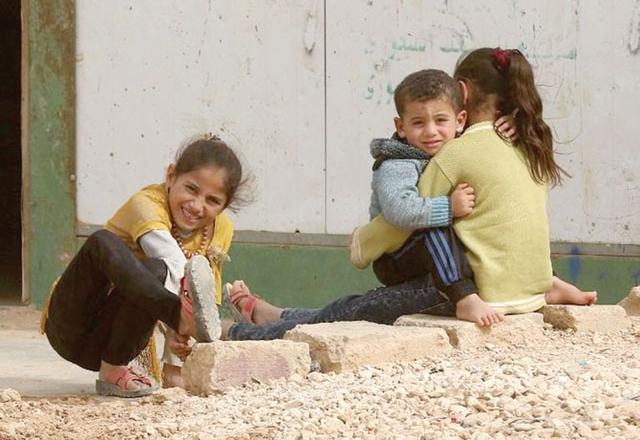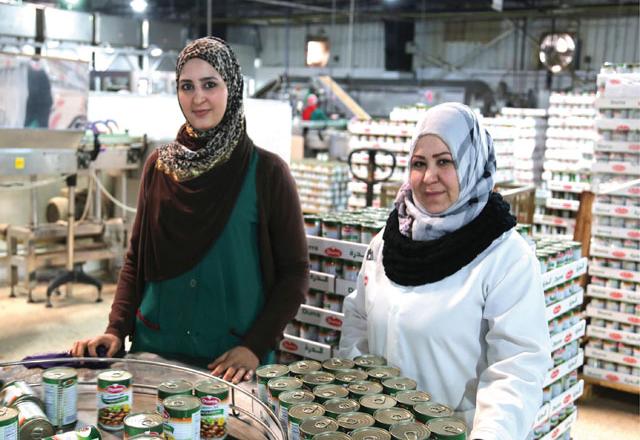You are here
Refugee women ‘worse off’ two years into Jordan Compact — report
By Camille Dupire - Sep 11,2018 - Last updated at Sep 11,2018

Refugees International senior advocate Izza Leghtas interviews Syrian and Jordanian women who operate their International Labour Organisation-supported business in Irbid recently (Photo courtesy of Refugees International)
AMMAN — Two years into the implementation of the Jordan Compact, an agreement aimed at improving the resilience of refugees and host communities in Jordan, many refugees, especially women, find themselves in a worse situation than before, a report published on Monday by the NGO Refugees International (RI) pointed out.
Described as a “paradigm shift” upon its signing by Jordan and the global community in February 2016, the compact entailed the provision of financial aid to the Kingdom, in exchange for Syrian refugees' facilitated access to the labour market, according to relevant literature.
However, a recent RI research mission conducted under the title “Out Of Reach: Legal Work Still Inaccessible to Refugees in Jordan” indicated that, out of the 106,000 work permits issued for Syrian refugees as of July 2018, only 4 per cent of them were held by women, despite half of Jordan’s refugee population being females.
‘Bleak situations which are worsening’
“Although the Jordan Compact has somewhat improved refugee access to labour markets, the fact remains that, in Jordan most professions are closed to non-Jordanians, including refugees,” RI senior advocate Izza Leghtas said in the report, noting that open sectors mostly include agriculture, construction and manufacturing.
“The situation for refugees in the country is bleak and in many ways worsening,” Leghtas continued, highlighting that “underfunded UN agencies have reduced financial and food assistance; refugees are struggling to make ends meet, given the high cost of living; and few have legal employment”.
For women and girls, many of whom shoulder the responsibility of providing for their families, the situation is even more difficult, the report stressed, pointing to the compounded challenges faced by the one-third of Syrian households headed by females in Jordan.
“While it is common for Syrian women to sell food they prepare at home or handicrafts they make, in early 2018, the Jordanian government issued instructions that have made it almost impossible for Syrians to register these home-based businesses,” the report highlighted, noting that most of them ended up “stepping up to find work where they can”, mainly in the informal sector.
“Our son was doing construction work, or whatever he could find. He got JD3 for a day’s work, and his fingers were bleeding. Now it’s JD5. But what can we do? We need to eat,” Iman (names were changed for anonymity purposes), a refugee whose son has been working in Jordan since he was 17, told RI.
Salah, another refugee from Somalia, recounted being stopped by the police while working in a coffee shop without a work permit. “The police came and took me to the office of labour,” where he said he was held in a cell with dozens of Egyptians who had been found working without work permits.
Despite being released thanks to the coffee shop owner’s connections, he had to sign a document saying that he would not work again. “Verbally, they said, ‘if you work again, you will get deported’,” he remembered.
For a humanitarian worker in Amman quoted in the report, “taking away home-based businesses [HBB] has really reduced the ability for refugees to be economically active. There are very few cases of organic joint ventures”.
An opinion seconded by one UN official, who told Leghtas: “HBB are extremely important to women… They do work from home, they have skills for that work. It’s a huge setback.”
Compounding women's existing difficulties
For Leghtas, this move further deteriorated an already difficult situation for refugee women. “The odds are stacked against them. Refugee women must contend with a series of additional challenges above and beyond those faced by their male counterparts,” the expert underlined, citing child care and domestic work, social and cultural norms as some of the many barriers for women seeking employment.
One woman interviewed by Leghtas, Samira, recently took the lead in talking to her coworkers’ husbands to convince them of the value of a baking and cooking business established in the northern town of Irbid, with the support of the International Labour Organisation.
“If [the woman] gets an income, the man will be quiet,” she said, noting that “one of the positive aspects of the war is that we’ve broken the tradition of shame, that you couldn’t go alone somewhere. Now, we feel alive”.
For many individuals, registering a business means working legally and being able to advertise and market products freely, without fear of being caught and punished.
But the obstacles to registration of HBB have a major impact on women…
For Leghtas, who called for the parties involved in the Jordan Compact to include refugee women’s effective access to livelihoods as an indicator of the compact’s success, "the Jordan Compact’s failure to deliver meaningful results for women is one of its greatest failures".
She outlined a number of recommendations to stakeholders, including the need to use the voices of refugee men and women to "inform the initiatives and policies that affect them".
"The Jordanian government should ease restrictions that prevent refugees from accessing legal work, and the international community must do its part to support Jordan," the report stated, concluding: "Enabling more refugee men and women to work legally would not only improve their economic situation and resilience, but also increase their contributions to Jordan’s economy and growth."
Related Articles
AMMAN — While the international community’s attention has been mainly focused on the plight of the millions of Syrian refugees displaced sin
AMMAN — As the 73rd Session of the UN General Assembly continues its meetings in New York, humanitarian actors working in Jordan on Monday i
AMMAN — A UN study on Jordanian and Syrian refugee women published on Sunday indicated that almost half of those who are unemployed would wo














